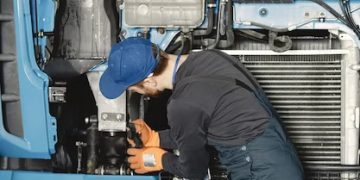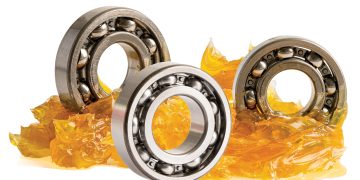The unprecedented used car market makes it more important than ever to understand vehicle history. Accident history is the No. 1 thing used-car shoppers look for in a vehicle’s history, and rightfully so: CARFAX estimates that the average impact on value for a vehicle with damage in its past is about $300 on the wholesale price and $400 on the retail price. Those numbers jump to an average of nearly $1,200 for wholesale and $1,500 for retail if the vehicle has sustained severe damage.
CARFAX estimates as many as 40% of vehicles on U.S. roads March 12, 2022 have some damage in their history; that’s about 110 million cars. CARFAX data also shows one in four cars are sold within a year of a damage incident. Dealers can use the CARFAX Vehicle History Report to see if there has been damage reported to CARFAX, and also get help in determining the severity. Most reports detail where the impact was and how severe the damage was.
“It’s such an advantage to not just see ‘accident’ or ‘damage’,” said Randy Bowman, General Manager at West Point Buick GMC. “When you can see ‘minor’ or ‘severe’, it helps explain to customers if it was a fender bender in a driveway versus a major accident where airbags deployed. It not only helps our customers to know that information up front, but it helps us protect our investment in our inventory.”
The CARFAX Vehicle History Report makes it easier for car dealers to find and assess damage, and make sure they’re getting the best inventory at the right price. It’s critical for dealerships to know whether a vehicle has sustained damage, otherwise they could be overpaying by hundreds, if not thousands, of dollars – directly affecting their bottom line. CARFAX has a free valuation tool, History-Based Value, that factors in location and market conditions as well as vehicle-specific information, such as reported accidents.
“The great thing about CARFAX History-Based Value is it truly compiles all the information into one source,” said Steve Rosenberg, General Manager at Cronin Hillsdale Chrysler Dodge Jeep Ram. “It tells you accident, service, ownership history for the specific vehicle you’re looking at. All of those things influence both wholesale and retail value. It helps us during acquisition and then when we go to sell, customers love that information. History-Based Value is an invaluable resource, and it makes our job so much easier.”
Tens of thousands of dealers – and millions of consumers – use CARFAX History-Based Value to help determine the most accurate pricing. CARFAX recently added three more commercials to its national ad campaign highlighting how understanding a car’s accident and damage history can ensure accurate vehicle pricing. Each one features CARFAX showing how two cars that look alike can have very different accident histories. The spots humorously show used-car shoppers trying to tell the difference between two vehicles that look identical – but have very different values – based on their individual history. The ads, titled ‘CARFAX Bestie’, ‘CARFAX Friday Night Rides’, and ‘CARFAX Twins 2.0’ are airing on network and cable TV stations nationwide. The ads remind car shoppers that the only way to get the most accurate price based on the car’s history is to look for CAR FOX and shop at CARFAX.com. Every vehicle listed on CARFAX.com comes with a free CARFAX Vehicle History Report provided by the dealer and many also include the original window sticker. The original window sticker can help shoppers figure out which features are included in the model they’re considering, and helps shoppers better understand the price.

























































